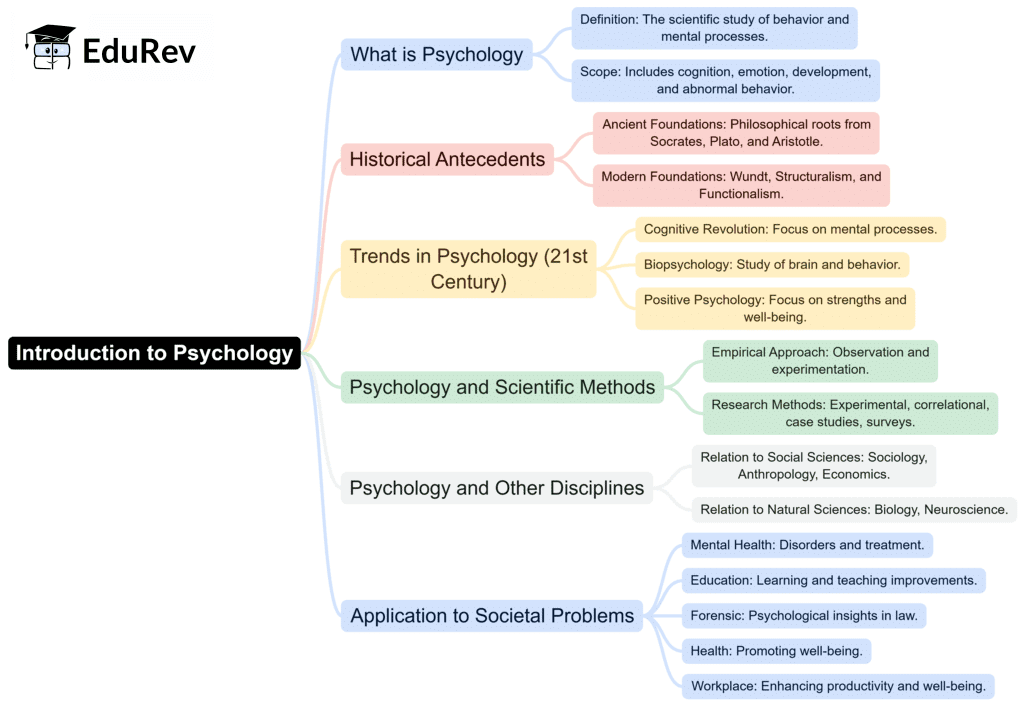UPSC Exam > UPSC Notes > Psychology for UPSC Optional (Notes) > Mind Map: Introduction to Psychology
Mind Map: Introduction to Psychology | Psychology for UPSC Optional (Notes) PDF Download

The document Mind Map: Introduction to Psychology | Psychology for UPSC Optional (Notes) is a part of the UPSC Course Psychology for UPSC Optional (Notes).
All you need of UPSC at this link: UPSC
|
160 videos|215 docs
|
FAQs on Mind Map: Introduction to Psychology - Psychology for UPSC Optional (Notes)
| 1. What are the main branches of psychology that are important for the UPSC exam? |  |
Ans. The main branches of psychology relevant for the UPSC exam include Clinical Psychology, Developmental Psychology, Social Psychology, Cognitive Psychology, and Industrial-Organizational Psychology. Each branch focuses on different aspects of human behavior and mental processes, which are essential for understanding various psychological concepts in the context of civil services.
| 2. How does understanding psychology benefit civil servants in their roles? |  |
Ans. Understanding psychology helps civil servants in several ways, including improving communication skills, enhancing empathy towards citizens, and effectively managing stress and conflict. It also aids in understanding group dynamics and societal issues, allowing for better decision-making and policy implementation.
| 3. What are some key theories of personality that UPSC aspirants should study? |  |
Ans. Key theories of personality include Freud's Psychoanalytic Theory, Maslow's Hierarchy of Needs, and the Big Five Personality Traits. Each theory offers different perspectives on the development and structure of personality, which is crucial for understanding individual differences in behavior.
| 4. What role does research methodology play in psychology for the UPSC examination? |  |
Ans. Research methodology is crucial in psychology as it provides the framework for conducting studies and interpreting data. Understanding different research methods, including qualitative and quantitative approaches, helps UPSC aspirants critically evaluate psychological research and apply these findings to real-world scenarios.
| 5. Why is the study of developmental psychology significant for UPSC aspirants? |  |
Ans. Developmental psychology is significant for UPSC aspirants as it examines human growth and changes throughout the lifespan, from infancy to old age. This knowledge is vital for addressing social issues related to education, health, and policy-making for different age groups within the population.
Related Searches
















